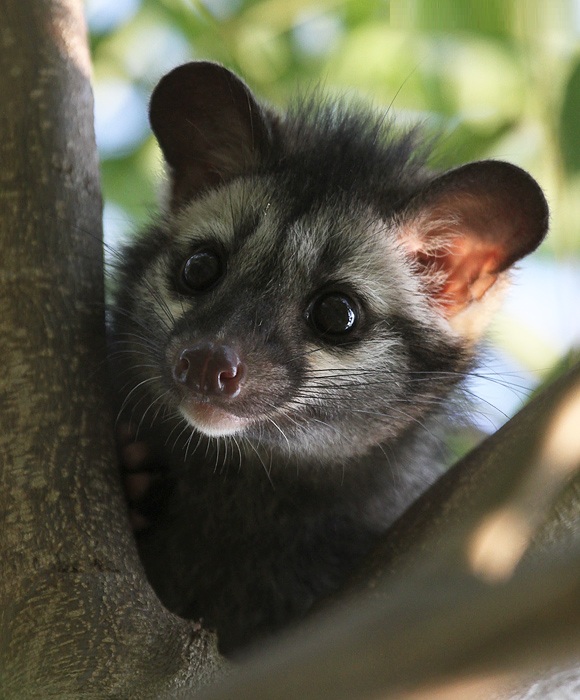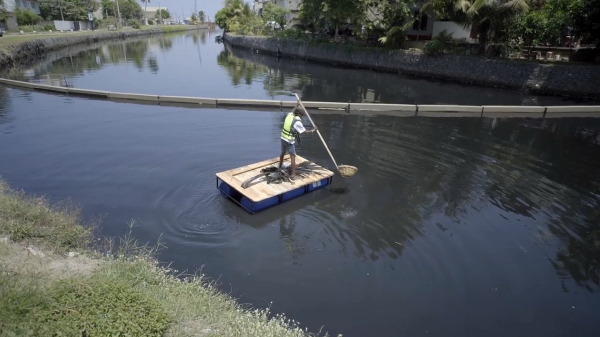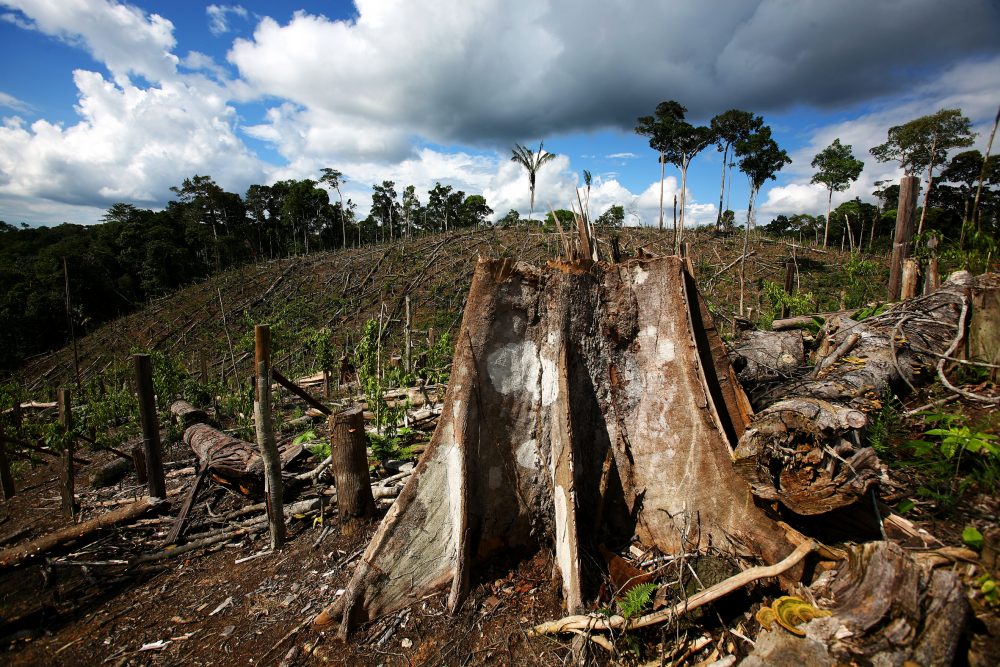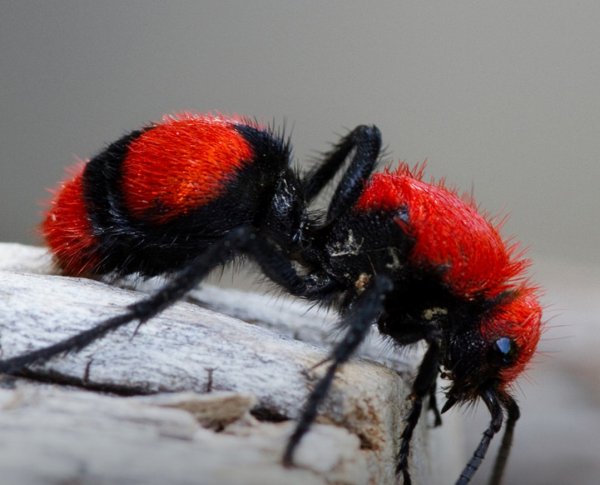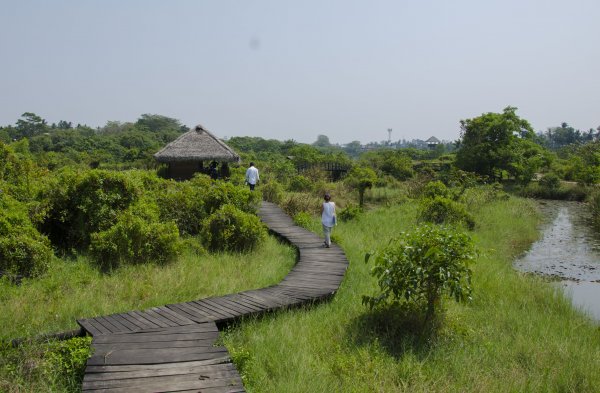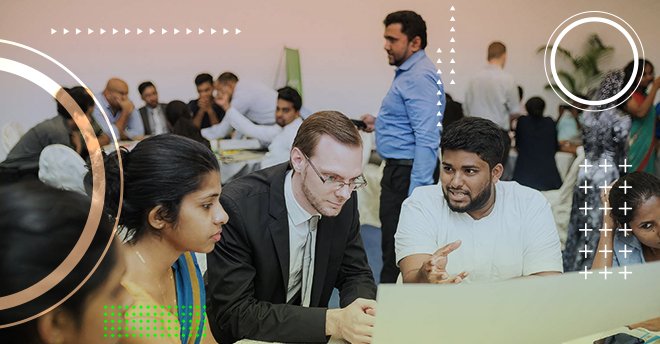
With International Youth Day celebrated world over on August 12, it comes as no surprise that the theme for 2021 anchors on a very pressing and vital topic, which is ‘Transforming Food Systems: Youth Innovation for Human and Planetary Health’ with the aim of highlighting the challenges of climate change and how related efforts globally need the meaningful participation of the youth in order to be solved.
Vositha Wijenayake, Executive Director of SLYCAN Trust, calls attention to the importance of empowering and championing the efforts of youth who will be facing the devastating impacts of climate change if immediate and urgent actions are not taken.
With over a decade of experience in working on climate change at both national and international level under the UNFCCC process, Vositha is an attorney-at-law specializing in public international law. She is a lauded environmentalist with many titles under her belt who has worked closely with youth on issues related to climate change, sustainable development, and food security over the years. Her work in this regard focuses on facilitating youth to engage in climate change related processes, capacity-building, and youth empowerment to take climate action. She is a member of the National Expert Committee on Climate Change Adaptation of the Ministry of Environment of Sri Lanka and has engaged in the climate negotiation process since 2009 in different capacities. Vositha is also a resource person and engages as an adviser and technical expert in many processes relating to climate change, environment, and sustainable development.
SLYCAN Trust is a non-profit think tank focused on climate change, sustainable development, biodiversity and ecosystem conservation, social justice, and animal welfare. The organisation has youth empowerment as a key focus area which includes addressing gaps and needs hindering or presenting challenges to enhancing youth engagement in national and international processes.
-
Why does climate change education matter? What is the importance of involving youth in policy and decision-making processes on climate change?
Climate change education matters because addressing climate change is a collective effort, and one of the, if not the, most important threats the world is currently facing. For effective engagement and the implementation of actions that are targeted towards reducing the impacts of climate change at local, national, and global levels, it is important that climate education and climate literacy are accessible by all.
Youth engagement in policy and decision-making processes on climate change is vital in ensuring that we focus on inclusive and participatory processes that lead to concrete results in our efforts to address climate change. Another reason why youth engagement in climate-related policies and processes is important is that the actions taken today will have implications on what future generations are facing. This means that our actions have a stronger impact on youth, and we need to ensure that their voices are heard in the decisions related to the actions deciding the future they will be living in.

-
The climate crisis acts as a threat multiplier, exacerbating existing inequalities like wealth and gender on a global scale. What is SLYCAN Trust’s take on these gaps as well as Sri Lanka’s biggest climate challenges right now?
SLYCAN Trust focuses on how existing social and economic vulnerabilities could be addressed and not exacerbated by the impacts of climate change. In doing this, we make sure to integrate these factors into our interventions related to climate action. This can be through interventions related to capacity-building leading to empowerment and livelihood development of vulnerable communities, actions focused on economic diversification, gender mainstreaming, and gender integration into different processes and actions at all levels. We also allocate a high importance to capacity-building and risk management, which would contribute to enhancing the capacity of those who are vulnerable to climate change. This includes actions which could build resilience to climate change and address existing social and economic vulnerabilities through inclusive and participatory actions and processes.
Some of the main challenges that Sri Lanka faces due to climate change are the impacts on the food-related sectors as well as the threats of climate change aggravating the impacts of hazards and causing losses and damages. Additionally, climate change results in adverse impacts on ecosystems and biodiversity, which affects the environment as well as communities dependent on these ecosystems. It is important that we identify these risks and ensure that evidence-based actions are taken to address them. This can be through mitigation and adaptation actions, through targeted efforts to address losses and damages caused by climate impacts in key economic sectors, and through measures which take into account a just transition leading to long-term resilience.
-
How would youth engagement contribute in aiding or solving the crisis mentioned above?
Youth engagement is important because capacity-building and awareness creation among youth can lead to actions that contribute to long-term resilience. For example, if climate action focuses on youth, their economic empowerment, and building their skills to enhance resilience to climate change impacts, there is a direct contribution to their lives as well as betterment of the lives of the communities they live in. Additionally, youth are able to provide innovative solutions and present new perspectives, offering an opportunity to refine actions and implement them in a manner that is evidence-based. Youth can also play a key role in activities that focus on outreach and communications, and their skills related to new media and communication tools provides them an opportunity to be leaders of their communities which could lead to climate awareness and engagement of communities in a successful manner. Another way youth could contribute to addressing the climate crisis is by monitoring the impacts of actions taken and providing data to a targeted group or a larger audience on the effectiveness of interventions.
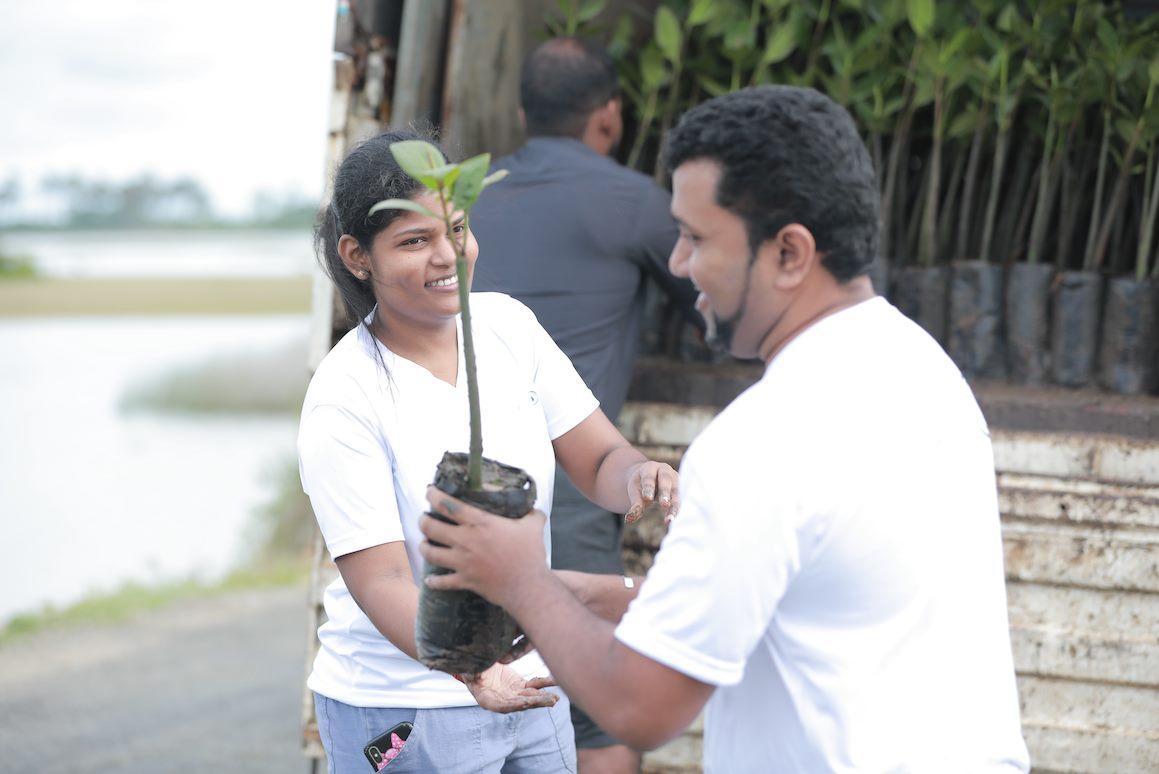
-
The theme for International Youth Day 2021 is ‘Transforming Food Systems: Youth Innovation for Human and Planetary Health.’ How can the participation of youth in these climate action activities contribute to the development of resilient food systems?
Food security is a key area we need to focus on for resilience, and youth have a role to play in this. This could be through adoption of climate-friendly, ethical, and sustainable food practices leading to a behavioural change which would result in reduction of emissions in the food sector, for example moving towards vegetarian and vegan food options or choosing organic and locally sourced food as opposed to chemical-based produce. This will contribute to change in behaviours which will create long term impacts for a healthy planet.
Youth could also be food sector champions through solutions to build sustainable, resilient, and regenerative food systems. Youth can apply solutions to agricultural practices which are climate-friendly and which lead to climate-friendly as well as climate-resilient food systems. Youth are also a key group in changing food systems through their innovation and entrepreneurship such as setting up start-ups that could be contributing through technology to solutions to address existing gaps in the food sector; establishing social enterprises which aim to achieve food security, and ensure that food systems are sustainable and climate-friendly; implement business ventures which are ethical and sustainable; and present innovative efforts to ensure that we achieve food security for all while working towards a climate resilient, healthy planet.
-
What are some challenges you’ve come across when working with youth climate activists in Sri Lanka? What are some of SLYCAN Trust’s methodologies in ensuring the voices of the youth get heard?
I believe youth working on climate change face challenges in engaging long-term in climate related activities. This could be due to lack of financial resources, limited avenues to build their capacities on technical aspects related to climate change, as well as the limited time available due to other commitments. Some of the ways that SLYCAN Trust has been contributing to address these issues is conducting regular capacity-building activities for youth. While these were conducted in person pre-COVID19, we currently continue them online and where possible in person. Additionally, SLYCAN Trust’s youth programme focuses on engaging youth in all activities we conduct. This includes policy and planning processes, implementation of ground-level actions including conservation activities, monitoring and evaluation efforts as well. The Global Youth Forum on Climate Change is conducted by SLYCAN Trust annually to engage youth in climate action at local, national, and international level and support them to implement initiatives by providing technical support, access to different platforms, and financial support where possible to implement project activities. Another initiative we are working on at present is the drafting of a youth climate change strategy which is conducted with the engagement of youth in Sri Lanka as well as other countries where youth highlight the challenges they face, the key areas to be focused on, and how they could engage and be empowered to work on different climate-related activities. The upcoming food systems dialogues which focus on the youth’s role in climate action and transforming food systems is another mechanism which we apply to engage youth in climate change related activities, while identifying provincial level needs for youth led interventions to be made.
-
How does SLYCAN Trust lead change in a society for a healthier climate and a more sustainable future?
SLYCAN Trust focuses on ensuring that actions related to climate change and sustainable development are evidence-based, inclusive, and participatory. To achieve this we focus on research and studies which will contribute to making informed decisions on achieving climate resilience and sustainable development. On the participatory processes, we work on multi-actor partnerships, stakeholder driven decision making which could scale up climate action, and activities on sustainable development. This includes working with different stakeholders on climate related activities, conservation efforts, risk management and resilience building for long term impacts which would benefit communities and ecosystems. Additionally, we prioritise capacity-building of multiple stakeholders to be able to contribute effectively to processes and implement actions which benefit the society and the environment. To this end, we prioritise contributing to increasing awareness, skill development, and sharing of good practices and lessons learnt which could guide other entities and individuals working on similar thematic areas and actions to build on what we have learnt.
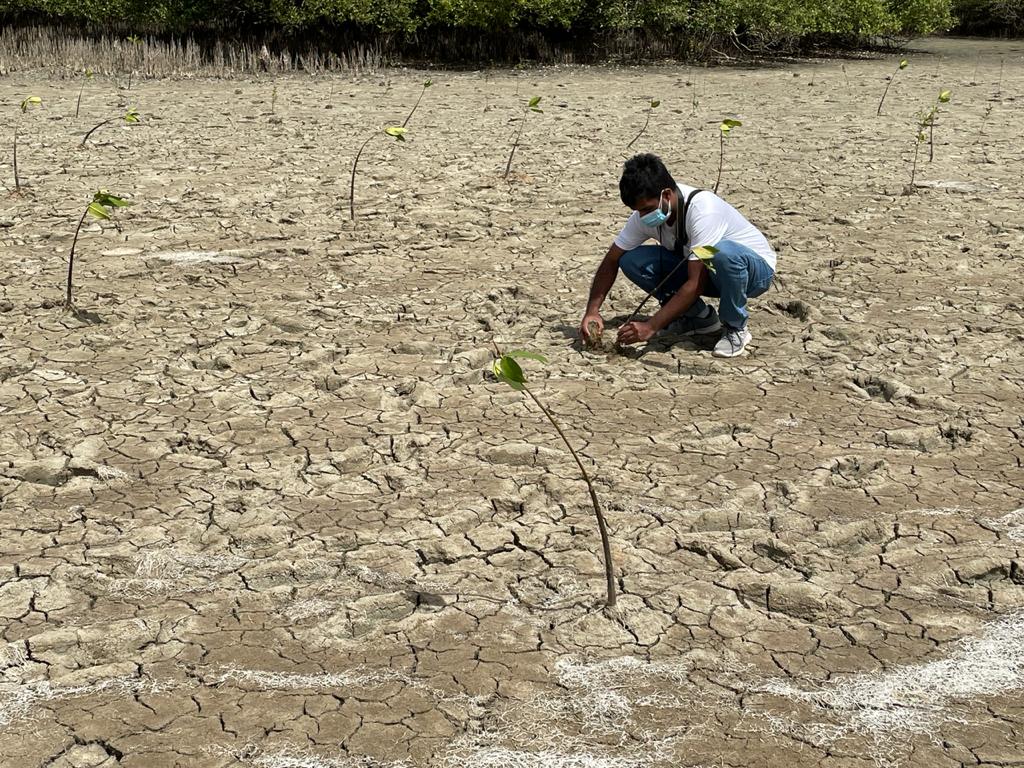
-
What would you say are the top three habits we should change that contribute to climate action?
Overexploitation of resources, and destruction of ecosystems and biodiversity in this process. Purchasing of items which are harmful to the environment and discarding them into the environment, often after limited use.
Production and consumption of unhealthy, toxic, or chemical-based food – we need to move to ethical and sustainable food options that focus on local producers and support communities while reducing greenhouse gas emissions and protecting the environment.
Self-centered and practices that do not take into consideration long term impacts. A strong relationship with nature, and a sense of collective wellbeing is important to be able to address impacts of climate change.



.png?w=600)
